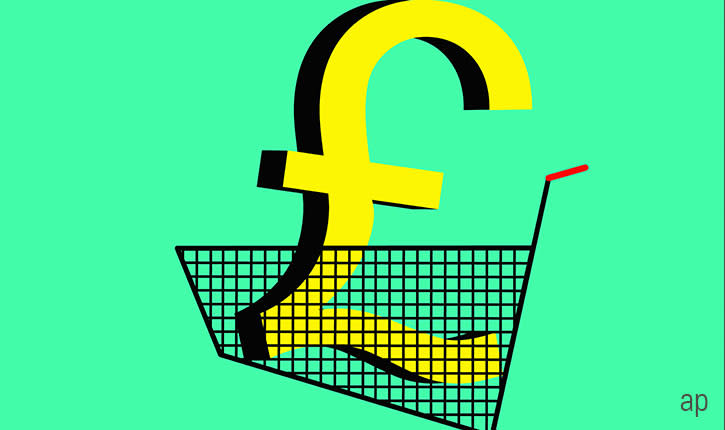4 Undervalued Stocks

Many stocks have already recovered since the big March sell-off. Some shares, like Facebook, are even trading at a higher price than at the beginning of the year.
Investors who panicked and sold out of the market as volatility took hold may now be concerned they have missed the boat when it comes to capturing the recovery gains, but there are still plenty of opportunities out there, according to Morningstar analysts.
We have screened for stocks that are trading below their Fair Value Estimate and have a Morningstar rating of five stars, indicating that they could be potential investment bargains:
British American Tobacco (BATS)
British American Tobacco was the largest cigarette maker in the world based on net sales last year. The company manufactures and sells cigarettes, tobacco and other nicotine products.
But with consumers more health conscious than ever before, the cigarette industry is on a downward trajectory. That trend has intensified in recent months, particularly in emerging markets where South Africa banned tobacco sales during the lockdown period.
BAT is less exposed to emerging markets than other tobacco companies such as Philip Morris International, and has a large markets share in developed countries, which has been strengthened further in recent months as border closures have limited the mobility of illicit tobacco.
Philip Gorham, director of equity research at Morningstar, believes it is the advent of e-cigarettes that has created the most significant change in the industry: “While conventional tobacco will remain the driving force of the industry profit pool for at least the next decade, big tobacco manufacturers are placing their bets on the new categories most likely to win share of smokers.”
He adds: “Early forms of e-cigarettes have existed for a generation, but with these consumers arguably less brand-loyal and more aware of health issues than ever before, the industry is on the cusp of a seismic shift to next-generation products.”
Morningstar Direct shows that BATS shares are trading at a 27% discount to their fair value and the company has an attractiv Wide Moat.
Vodafone (VOD)
British telecoms giant Vodafone operates in 26 countries and has steadily grown its business over the past years, becoming one of the largest wireless phone companies in the world, with almost 444 million customers, around 19.5 million in the UK alone.
And according to Morningstar analysts, Vodafone’s share price is too cheap to ignore. Since its low point of 98p in March, shares have gained around 31% to a current level of around 130p. But the stock is still trading at a 34% discount to fair value and has a Narrow Moat.
Morningstar analyst Michael Hodel believes the sheer volume of customers is one of the company's greatest advantages: “As telecom networks are expensive to build and maintain, the more customers an operator has on its network, the lower the average cost per subscriber. The high costs of building and maintaining a network tend to limit the number of operators in a country, which leads to an efficient scale moat.”
Crucially, for income-seeking investors, the business is a shining light in a sea of dividend cuts. In May, Vodafone confirmed its final dividend payout and at current levels the shares yield a meaty 6.15%.
Sainsbury's (SBRY)
Sainsbury's is the second largest chain of supermarkets in the UK after Tesco, with a 15.8% market share. But the grocer hasn’t had an easy time with the pandemic: while it has seen a rise in grocery sales, that gain has been offset in other areas of the business due to social distancing measures. Indeed, the company has had to grapple with the soaring costs involved in protect staff and customers, as well as a decline in non-food and fuel sales.
On top of that, after the recent rejection of Sainsbury's proposed merger with Asda, the supermarket is in need of new a turnaround strategy if it wants to regain market share and shore up its position against the discount retailers Aldi and Lidl.
But Morningstar analyst Ioannis Pontikis is positive on the outlook for the firm: “We think Sainsbury’s can regain competitiveness and we see multiple paths ahead."
He thinks a new partnership or merger with a smaller grocer in the UK could be one way to generate the necessary cost savings to invest back in prices. Alternatively, the group could undergo a 2015 Tesco-like restructuring through an aggressive reassessment of the structural costs of its business.
Sainsbury's is trading at a 23% discount to its fair value and has no moat.
Samsung (SMSD)
South Korean teach leader Samsung produces and sells a variety of electronics, from mobiles phones, to laptops and TV screens.
But what Morningstar analyst Kaxunori Ito really likes about the company is its semiconductor business, which he believes “will remain the profit driver in the longer-term, driven by the robust growth of data traffic.”
Like so many others, the company has been hit by the coronavirus pandemic, as demand for consumer discretionary spending on the likes of smartphones and TVs fell significantly. The outbreak also forced factories in South Korea, India and Brazil to shut and the company to close some retail operations in Europe and the US. As the world begins to emerge from lockdown, however, Samsung could be well-placed to benefit from a splurge of pent-up consumer spending.
As well as that, demand for the firm's chips remained resilient through the pandemic due to inreased use of servers and PCs in the second quarter, as more people worked from home, boosting use of video conferencing platforms and streamed digital entertainment.
Samsung is trading at a discount of 16% to its fair value and has a Narrow Moat.

 Yahoo Finance
Yahoo Finance 